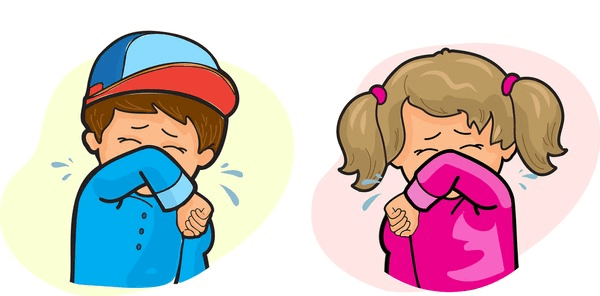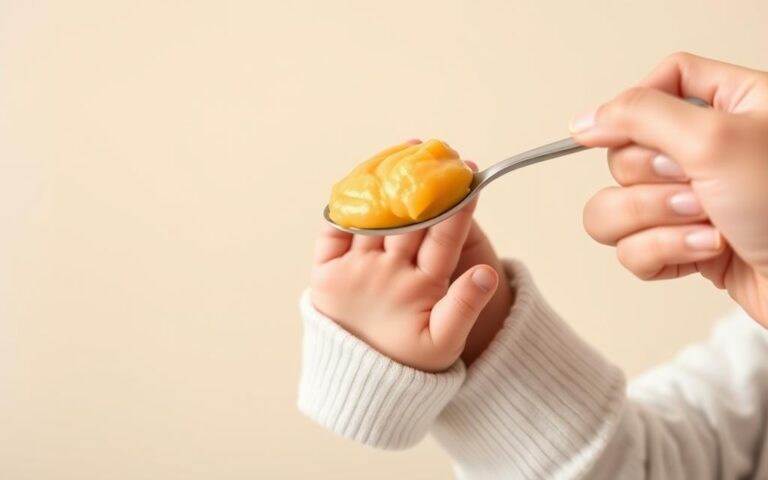Common Colds in Young Children (Ages One to Five)

Children between the ages of one and five are particularly susceptible to the common cold due to their still-developing immune systems. The typical symptoms of a cold include a sore throat, sneezing, and a stuffy or runny nose. While most colds resolve on their own within a couple of weeks, there are several ways you can help your child feel more comfortable during this time by ensuring they get adequate fluids and rest.
Why Do Children Get So Many Colds?
It might feel like your child is constantly catching colds or that they have a never-ending cold. In reality, it’s quite normal for children to experience eight or more colds annually. The reason behind this is their developing immune systems, which aren’t as effective at fighting off cold viruses compared to adults.
Every time a child encounters a specific cold virus, their immune system creates antibodies to fight it off in the future. However, since there are numerous cold viruses, it takes time for children to develop robust immunity. The common cold is classified as an upper respiratory tract infection because it affects the nose and throat.
Children who attend nursery or preschool or spend a lot of time around other children are more prone to catching colds. Kids love exploring with their hands, which means they frequently come into contact with cold viruses through play and touching objects, and then touching their faces.
While your child’s immune system matures, be prepared for them to experience plenty of colds. Rest assured, most children require just comfort and care, and their cold symptoms will typically resolve within a few weeks.
Also read: Burns and Scalds in Young Children
Symptoms of the Common Cold
The common symptoms of a cold include a cough and a stuffy or runny nose. Other signs may include:
- Sore throat
- Headache
- Muscle aches
- Sneezing
- Raised temperature
- Earache
- Loss of taste and smell
- Fatigue and irritability
- Difficulty sleeping
- Reduced appetite
These symptoms are generally not a cause for concern and should clear up within a week. A lingering cough can be bothersome but is unlikely to harm your child’s lungs. Occasionally, your child may cough so intensely that they vomit. While this is distressing, it is not typically alarming.
Is It a Cold or an Allergy?
Symptoms of allergies can closely resemble those of a common cold, but there are some key differences:
- Allergies are more likely to cause irritation and itching in the eyes and nose.
- Nasal discharge from allergies is usually clear and watery, unlike the thicker yellow-green mucus associated with colds.
- Allergies typically do not cause a raised temperature.
- Allergy symptoms often persist longer than cold symptoms.
When to Consult a Doctor
While most colds are harmless, sometimes they can develop into more serious infections. Be aware of the signs that may indicate a complication such as an ear or chest infection. Contact your GP if you notice any of the following:
- Signs of breathing difficulties, such as wheezing or loud breathing
- Trouble swallowing
- A rash
- Signs of dehydration, like sunken eyes, drowsiness, or infrequent urination
- Chest pain
- A high temperature lasting more than five days or not responding to medication
- Severe headache, sore throat, or earache
- Fluid or pus from one or both ears
- Swollen glands in the neck
- A cough lasting more than three weeks, especially if it worsens at night or during activity
- Other symptoms that last over 10 days or worsen after five days
If your child experiences severe breathing difficulties, a rash that doesn’t fade when pressed, or any other alarming symptoms, call 999 for an ambulance immediately.
Should I Keep My Child Home with a Cold?
If your child attends nursery or preschool, they can usually continue to go if they only have a runny nose and cough. However, if they develop a fever, it’s best to keep them at home until their temperature returns to normal. If you’re unsure, call the nursery or preschool and describe your child’s symptoms for advice.
Home Remedies for a Child’s Cold
While no medicine can make a cold virus go away faster, you can help your child feel more comfortable by ensuring they get plenty of rest and fluids. Here are some home remedies to try:
- For a stuffy nose: Saline nose drops can help thin mucus and make breathing easier. Consult your pharmacist for recommendations.
- Steam inhalation: Sitting in a steamy bathroom with your child can relieve a blocked nose. Be careful to avoid burns.
- Sore throat relief: A warm drink of lemon and honey (only for children over 12 months) can be soothing. Avoid honey in children under one year due to the risk of botulism.
- Vapour rub: Applying vapour rub to your child’s chest and back can help them sleep better by easing congestion.
Avoid giving menthol sweets or lozenges to children under five due to choking hazards, and don’t let young children gargle with salt water as they may swallow it.
Older children may learn to blow their nose, but it’s easier to teach them this skill when they don’t have a cold. Practice blowing a feather along a table using their mouth, then their nose, and finally introduce a tissue.
Can My Child Take Over-the-Counter Medicines?
Over-the-counter cold and cough medicines are not recommended for children under six years old, as they may not help recovery and can cause side effects like sleep issues, allergic reactions, and hallucinations. If in doubt, consult a pharmacist.
For feverish or uncomfortable children, you can offer the appropriate dose of paracetamol or ibuprofen for their age and weight. Do not give both medications simultaneously, but if one doesn’t help, consider trying the other. Never exceed the recommended dose.
Reducing the Number of Colds
While it’s normal for children to catch several colds annually, you can take steps to reduce their exposure:
- Practice good hygiene: Encourage frequent hand-washing, especially before and after meals, and after coughing or sneezing. Teach older children how to wash their hands effectively.
- Avoid sick contacts: Where possible, keep your child away from people who are ill. For example, consider canceling playdates if you know a child has a cold.
- Limit exposure to shared toys: Cold viruses can linger on toys, spreading easily among children.
Even with these precautions, expect your child to experience their share of colds. Keep tissues handy and be prepared to offer extra comfort when they’re unwell.
Also read: What to do if my child refuses to eat any meat?






